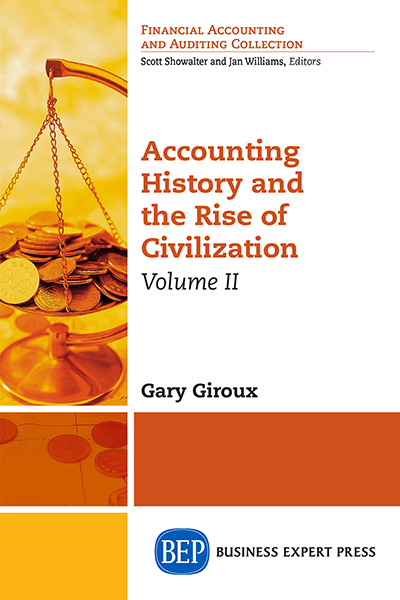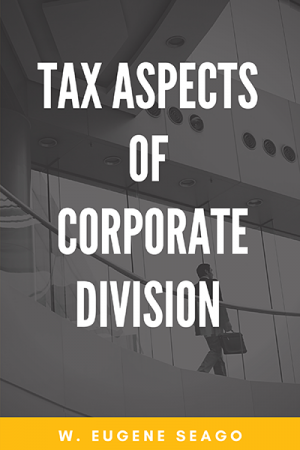Accounting History and the Rise of Civilization, Volume II
$21.99
Accountants were present at the creation of civilization, maintained their importance throughout history, and proved essential at various stages of cultural development—from the earliest record-keeping and the invention of writing, to double-entry bookkeeping, cost accounting of complex manufacturing, the development of professional management and accounting (which went hand-in-hand), through the amazing technologies of the information age. In other words, our civilization does not exist without sophisticated accountants and their dynamic inventions. Telling this amazing story is the purpose of this book. The story of accounting and how information is collected, analyzed and disclosed is as old as—and absolutely essential to—civilization. A fair number of key ingredients needed for modern business (and other institutions) were invented in the ancient world—money, record-keeping, numbers, writing, property rights, trade, banking, the corporation. Many of the factors that are part of today’s rocket science on Wall Street date back to earlier centuries, including the use of credit, derivatives, and stock markets—not to mention manipulation and fraud. Financial, managerial and other accounting information was needed for successful entrepreneurs. The information revolution started with Gutenberg’s press (which conveniently spread Pacioli’s Summa across Europe), the Industrial Revolution with the steam engine, mass transit with the railroad, and instantaneous communications with Samuel Morse’s telegraph. The internet represents important extensions of earlier innovations, the latest phase of the information revolution. Accountants were directly (or indirectly) involved in all of these and accounting information permeates virtually every aspect of the complex culture that is modern civilization. This book is a brief history of accounting, focusing on the long-term importance of accounting on issues from information accumulation and analysis around money and finance, business and government, and continuing success as technology and innovation expands. The focus is relatively traditional, except it intertwines with commerce, finance, and related business interests that make up what became modern civilization. For example, most corporations and other entities innovated and succeeded long-term because of increasingly complex (and useful) accounting techniques providing necessary information and control. This was true of Josiah Wedgwood, Andrew Carnegie, and General Motors. Accounting applications became early uses of computers, beginning with payroll records at General Electric in the 1950s. From electronic spreadsheets to tax preparation, the computer/accounting partnership continues.
Additional information
| Copyright Year | 2017 |
|---|---|
| Pub Date | May 16, 2017 |
| Pages | 208 |
| ISBN | 9781631577932 |
| Print Price | $21.99 |
| EISBN | 9781631577949 |
| EBook Price | $13.99 |






